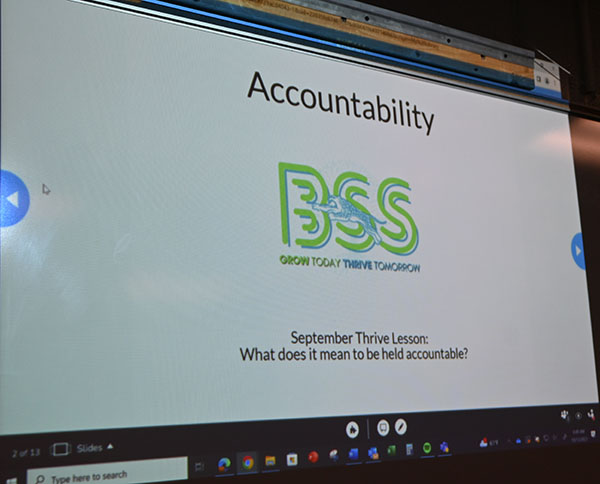South celebrates Black History Month
April 13, 2022
By Evelín Gutierrez
Editorial Editor
The month of February celebrates Black History Month, which is a time where we remember great African American individuals who have contributed to inventions, ideas, or left an impact on our modern society.
While we may know of the celebratory month itself, what about the origins? According to the official history website, Black History Month dates all the way back to 1915, when Carter G. Woodson created an organization known as the Association for the Study of Negro Life and History. Woodson hoped that others would popularize and recognize the discoveries that he and other black intellectuals would publish in “The Journal of Negro History,” which he established successfully in 1916. In 1920, Woodson urged black civic organizations to promote the achievements that researchers were uncovering. This led to Woodson sending out a press release announcing “Negro History Week” in 1926 on February 7 to celebrate Black history and bring awareness to the topic overall.
According to the Texas A&M Archives, Black History Month got its official name in 1976, when Texas A&M University Afro-American history professor Albert Broussard turned Woodson’s Negro History Week into a month-long celebration, now known as Black History Month.
“We celebrate Black History Month in February because black people had traditionally celebrated the birthdays of Abraham Lincoln and Frederick Douglas, both of whom were born in the month of February,” Broussard said. “Oftentimes Black history is taught as a celebration of this great man or this great woman, but that wasn’t what Woodson had in mind. He wanted this time to be a celebration of the achievement of Black people as a race, recognizing that Black people were part of the history of this country from the very beginning.”
Since 1976, every American president has designated February as Black History Month and chosen a theme for it. The 2022 Black History Month theme is “Black Health and Wellness,” which not only explores the legacy of many African American scholars and medical practitioners in Western medicine, but also other ways of knowing medicine (e.g., midwives, herbalists, naturopaths, etc..) throughout African history and culture.
Of course, South celebrates Black History Month in new ways each school year. This year, the morning announcements have brought light to African American intellectuals who have greatly impacted our world. For example, in the week of February 7-11 the morning announcements discussed George Washington Carver and his achievements and impact in the science field, along with Carver being born near Joplin. A great example would be his ideas of Pioneering Crop Rotation. Due to the single-crop cultivation of cotton, the soil of many fields throughout the South had become depleted and more or less worthless. Carver’s solution was to urge farmers to plant peanuts and soybeans, which could restore nitrogen to the soil while also providing much needed protein to the diets of the consumers. This idea went on to revolutionize agriculture, and saved the livelihood of many farmers to come when the devastation caused by storms in the Dust Bowl hit during the Great Depression.
South also hosted a door decorating competition for Black History Month, and the diversity of the decorations was massive. Ranging from a “Hidden Figures” inspired door, to a door discussing some lesser known black intellectuals, South was able to see some great inclusivity regarding the months celebrations as students created art pieces or collages using black individuals from all walks of life and careers. On February 24, South showed a movie during the school day called “Loving” which is a story about Richard and Mildred Loving, an interracial couple in 1967, and their case Loving vs. Virginia when the U.S Supreme Court denied their marriage as it invalidated state laws prohibiting interracial marriages.
When celebrating Black History Month it is important to regard the many, many achievements and successes founded or carried out by the African American community. We commonly recognize Rosa Parks, Martin Luther King Jr., Harriet Tubman, and even President Obama, but it is important to remember the hundreds of other black and African American activists that have changed our world for the better.







